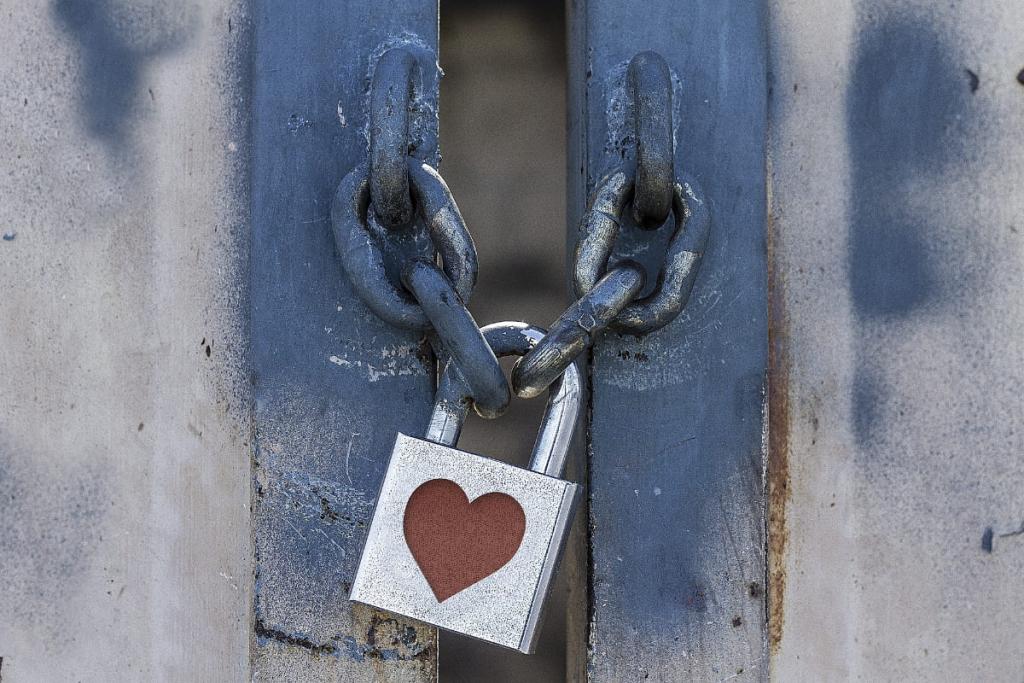When I resigned from Ordo Templi Orientis I promised myself I would keep all my initiatory oaths. Well, I said, except for one. After two years of saying that to myself I realized it was bothering me. Why that one? It was the one that would have prevented me from leaving – if I was going to resign I had to break it. The thing is, I had been thinking it was untenable from the moment I first gave it in initiation. If it was untenable was it a valid oath?
I took that question to my learned colleagues at Living Theurgy. This is a recorded conversation we’ve been holding monthly for five years. I think of the group as the Llewellyn circle of theurgists since all of us are Llewellyn authors. My colleagues agreed to tackle the subject of oaths and this took up two of our monthly sessions (linked below).
Living Theurgy is hosted by Hercules Invictus. He’s a dedicated host recording one conversation a day (really!) on a variety of occult and esoteric topics. The other attendees who weighed in on the subject are: author Bruce MacLennan, who also writes as John Opsopaus and goes by Apollonius; author Tony Mierzwicki; and author Jean-Louis de Biasi, who is also the Grand Master of the Aurum Solis. (Patrick Dunn sometimes attends but didn’t on these occasions).
The question was: are there oaths that are unenforceable, and if so, are they magically valid?
Oaths of Secrecy
I led with the example of the Gardnerian first degree oath, quoting from The Book of Shadows by Lady Sheba.
I, (name), in the presence of the Mighty Ones, do of my own will and accord, most solemnly swear that I will ever keep secret and never reveal the secrets of the Art, except it be to a person properly prepared, within a circle such as I am now in…All this do I swear by my hopes of a future life. Mindful that, my measure has been taken, and may my weapons turn against me if I break this my solemn oath.
I started with this question because you have to tackle secrecy in order to discuss initiation at all. I pointed out that every initiation I have ever taken is published. If I take an oath to keep secrets that are already public knowledge, is that a valid oath?
My colleagues discussed the purposes of secrecy. Apollonius thought there was a good case for doing rituals in an initiatory sequence. Jean-Louis noted that it’s imperative to keep the identities of fellow initiates secret, pointing out that in parts of the world people are killed for belonging to initiatory organizations. He also noted that we shouldn’t need to swear an oath to do this, it should just be common sense.
Apollonius reminded us that Aleister Crowley famously complained that he had been required to swear to keep the Hebrew alphabet a secret. Hercules offered that he knows many people who have sworn secrecy oaths to published material and usually get around it by quoting the published source.
Oaths of Service
This is how I handled my next example, I read out the published version of the O.T.O. fifth degree oath. Here it is from Secret Rituals of the O.T.O.: “I further pledge myself to the service of the Order to the last drop of my blood and the last penny of my purse…at the cost of the death of my body and the damnation of my soul.”
When I left the order to care for my husband with ALS I broke that oath. I hastened to assure my theurgic colleagues that my concern about this was entirely my own. The O.T.O. is a 501(c)3 California religious non-profit corporation with a membership structure. In my twenty years as a member no one had ever asked me for more than my yearly dues, a few hundred dollars at the most. No one had asked me for more time and energy than it took to fulfil my volunteer obligations. I found that time and energy more emotionally taxing than I could handle given my life circumstance, but no one has ever faulted me for that, and I have remained on cordial terms with my friends still in the order. On the legal and social level it was not complicated to hand in my resignation.
What about the magical level? I’d worried about that from the moment I read the oath. I took into account how my fellow initiates were handling it. No one was asking anyone to turn over their bank accounts, at most there was a wistful suggestion that we could remember the order in our wills. Everyone had normal jobs and non-O.T.O. friends and hobbies. Also no one was giving blood unless someone organized a blood drive. So we weren’t actually giving the last drop of our blood and penny of our purse. Were we all breaking that oath just by living our normal lives?
That led to discussion about how to avoid the situation I was in. Jean-Louis and I were the only people who had given (and administered) initiatory oaths, everyone else had avoided them. This is the first line of defense – don’t take oaths! Apollonius noted that an oath is a form of self-curse.
Apollonius advised particularly against giving oaths to an individual or organization. This seemed like an obvious idea once he said it and I was embarrassed. I’d had some time to consider that oath before I gave it, so why did I agree to it? At the time it seemed kind of cool in that retro way the O.T.O. often does: wow, there are still magical lodges that give those old school oaths! In retrospect though it does seem less like a noble commitment and more like a stunningly bad idea. I thought of it like a marriage, but I didn’t take into account that marriages do end – the marriage vow “until death do us part” is often broken. Today many nuptial vows omit that phrase. In the modern world we understand that people change, life circumstances change, what serves us shifts, and no one should be forced to stay in a relationship that is no longer working. “Oh lover, if thou wilt, depart! There is no bond that can unite the divided but love: all else is a curse.” AL I:41.
This reminded my colleagues of the Scientology contract that famously mandates a billion years of service. No one outside Scientology faults anyone for breaking that contract. I didn’t experience the O.T.O. as resembling Scientology, but it is a cautionary note when an oath brings that one to mind. Most of the O.T.O. initiatory oaths more or less replicate the Freemasonic degrees they’re patterned on, but the Royal Arch initiation corresponding to the O.T.O. fifth doesn’t have any language about pledging service. I’ve argued elsewhere that the O.T.O. isn’t a cult, but if there is one cultish moment, pledging service through money and blood is it. It appears that Freemasonic organizations have stopped levying blood oaths and Jean-Louis condemned them in his discussion.
Taking Oaths Seriously
This got my colleagues thinking about how seriously we take oaths today. I know people preparing for initiation who shrug and say that the oaths don’t matter all that much. On the other hand for people who do take oaths seriously this is a difficult subject to navigate. Almost all the people who say they have left the O.T.O. actually mean they’re dues inactive – they haven’t paid up their dues and don’t go to events but they’re still in the order. I also know people who would like to leave but do feel trapped by their initiatory oaths.
Tony Mierzwicki talked about his Patheos article Oaths in Ancient Greece. He pointed out that the Eleusinian Mysteries were kept secret to the end of antiquity because the entire culture prosecuted anyone who hinted at them. Our culture today doesn’t take oaths as seriously as that.
Honestly that gave me a bad moment. I’ve taken oaths seriously for my 50 years as an initiate in various magical groups. I didn’t take that oath of service falsely, I thought I’d be with the O.T.O. for the rest of my life, but I did end up leaving. Was I really at risk of some kind of magical consequence?
Apollonius pointed out that one reason people don’t take initiatory oaths seriously today is that they have clearly been broken many times without the threatened consequences materializing. Israel Regardie published the Golden Dawn rituals and went on to live a long and happy life. Apparently the magical current didn’t punish him for his actions.
The legacy of Freemasonry
Jean-Louis de Biasi pointed out that the oaths we were considering are versions of the Freemasonic oaths. Here’s an excerpt of the Entered Apprentice oath from Duncan’s Masonic Ritual and Monitor, Malcolm C. Duncan, 1866.
I, Peter St. Gabe, of my own free will and accord, in the presence of Almighty God and this Worshipful Lodge, erected to Him, and dedicated to the holy Sts. John, do hereby and hereon most solemnly and sincerely promise and swear, that I will always hele, ever conceal, and never reveal, any of arts, parts, or points of the hidden mysteries of Ancient Free Masonry…except it be to a true and lawful brother Mason…
All this I most solemnly, sincerely promise and swear…binding myself under no less a penalty than that of having my throat cut across, my tongue torn out by its roots, and my body buried in the rough sands of the sea…
Jean-Louis said he asked his Freemasonic colleagues why are we still giving these oaths? and got the reply, it’s traditional. He subsequently led a successful campaign in his Freemasonic organization to change the oaths.
Jean-Louis also considered the energy of the egregore. Initiation binds the energy of the initiate to the egregore of the group. He noted that when people leave the Aurum Solis the order’s leadership performs a ritual to release that individual from the egregore. This has a benefit for the group by removing the energy of a person who no longer wishes to be associated. It also has the benefit of releasing the individual from their energic ties. It’s clean.
When an Oath is Broken
Personally I’d like to go on with the rest of my life without looking over my shoulder for Horkos (the Greek daimon punishing oath-breakers). I asked my colleagues their advice about what to do about my broken oath.
Apollonius and Hercules suggested that someone who has broken an oath could take up the case with the gods and energies to whom they had given the oath. I added that it’s also possible to appeal to another authority altogether. I reminded us of Apuleius’ story The Golden Ass in which a cursed man is aided by Isis. I also mentioned Surpu, a Mesopotamian ritual translated by Erica Reiner, which invokes the god Assalluhi to specifically dissolve oaths.
Invalid Oaths
There are circumstances that invalidate oaths. A person who is underage or under the influence can’t give a meaningful consent. My partner Ted Gill has long argued that an oath given under duress is not a valid oath. This invalidates any oath sprung on a person during an initiation.
An oath given in a language you don’t understand is also invalid. That happened to my coven – we took a White Tara empowerment from the Gaden Shartse monks when they visited Seattle. After the empowerment one of the monks asked us to repeat what he was saying in Tibetan, and then laughed and said we’d all taken the Boddhisattva vow (“however many sentient beings there are I vow to save them”). In discussion later the coven decided we did not agree with this non-consensual binding and took magical steps to duck out of the lasso.
To answer my own question: I do think that unenforceable oaths are not valid. We should be able to talk freely about material that is published. With the exception of personal identities, all of the secrets I’ve sworn initiatory oaths to keep are published.
I also believe we should be able to pursue our magical careers without pledging our lives to an organization or a person. It shouldn’t have been necessary for me to break a magical oath to leave a membership organization to take care of my disabled and dying husband. For that matter, an organization should not be asking for all my blood and all my money, even metaphorically. Throughout my career I loved the order and thought it was important enough to give a lot of time and public support, but no organization is more important than the welfare of people in it. I am abashed that it took a change in my own life circumstance for me to question the need for such oaths.
All the initiations I’ve taken in the western magical tradition are published, but I do actually know secrets that are not published or available on the internet, Tantric mantras and visualizations that come directly from India. My teacher simply asked us to keep those to ourselves. She didn’t levy an initiatory oath or threaten death or other magical punishment. She assumes we are all adults who can behave toward each other with integrity. Why aren’t we treating each other like that in the western initiatory traditions?
After these conversations I also found Jerry Cornelius’ essay An Open Epistle Regarding Francis King’s Book The Secret Rituals of the OTO directly pertinent. He argues that a magical oath between the magician and “his Universe” differs from a fraternal oath, and that a fraternal oath is no longer binding once the member leaves the fraternity. It’s reassuring to think so.
Moving Forward
I’ve thought about the issues my colleagues brought up and have some ideas about what to do going forward in our personal lives and in the magical communities.
Steps to take as initiators
Jean-Louis advocated changing Freemasonic style oaths. We can recommend this change to our organizations. It’s likely to be hard going among conservative people and organizations. Some folk I talk to who have given these severe oaths don’t feel that they have the power to alter them as initiators. They may also fear that changing the oath will diminish the power of the initiation. Also, changing oaths means weaning the organization off the energic charges supporting the egregore. Put another way, cultural change is difficult to accomplish.
However when we write new rituals we not only have the opportunity but the obligation to stop pushing those Freemasonic oaths forward. The Open Source Order of the Golden Dawn has closed the lodge and removed the initiations from their web site. However I have copies of the redactions we used in Temple of Light and Darkness, a group of friends which accomplished all the Golden Dawn initiations from Neophyte to Adeptus Minor. Here’s the Neophyte oath:
“I, (name), have no right but to do my will; I shall do that and no other shall say nay. For pure will unassuaged of purpose, delivered from the lust of result, is every way perfect.”
This is a New Aeon Thelemic oath. I have no regrets or questions or fears about the oaths I took in that Golden Dawn group.
When I wrote the rituals for Sisters of Seshat I avoided pledges to people or lodges. The candidate simply pledges to the powers that govern the ritual to take the initiation. Here’s an example from the Moon Initiation:
Hierophant: Sister, do you pledge to persevere in your quest to experience mystery? (Candidate answers). Hierophant: Then say, “Let the triple powers witness my pledge.”
Steps to take as initiates
My colleagues noted that the best way to avoid being bound to an untenable oath is not to take any oaths. Another option is to avoid taking any oath you haven’t written yourself. My sister has steadfastly refused to take an oath of secrecy and writes her own oaths for her initiators to use. In her teaching coven she refuses to initiate a person until they’ve reviewed the oath and discussed what it means.
If you do want to pursue an initiation which requires an oath you have the right to ask for a copy of an oath before you take it. If the organization won’t accommodate that request you can look it up, all these oaths are published. Be aware that some initiations in Witchcraft, the Golden Dawn, and O.T.O. still have surprise oaths, so looking up the oath ahead of the time gives you time to decide whether you will take it. I have seen a candidate halt an initiation to consider an oath, which takes a lot of courage. I’ve seen more have regrets after the fact.
If you find yourself bound by an oath you can no longer tolerate you can take steps to end the obligation. In the best circumstances this will be a two-way working, as with the Aurum Solis which frees the initiate from the egregore. You may also be taking this action unilaterally. You can invoke the deities or energies to which you pledged the oath and make your case to them. I offered some suggestions about how to cut connections to an organization in Leaving a Magical Group. You can also find Surpu on Scribd and Internet Archive to provide ideas for your own ritual.
If you feel the oath you gave was invalid for one of the reasons discussed here you might skip the plead-your-case step and move straight to cutting energy. I have separated myself from the O.T.O. egregore.
I think we need to have a lot more conversations about initiatory oaths. I’m grateful to my colleagues for taking on this discussion and helping me work through this thorny subject. I encourage you to check out their works on theurgy, they have many books between them. Here are the links to the conversations.

















